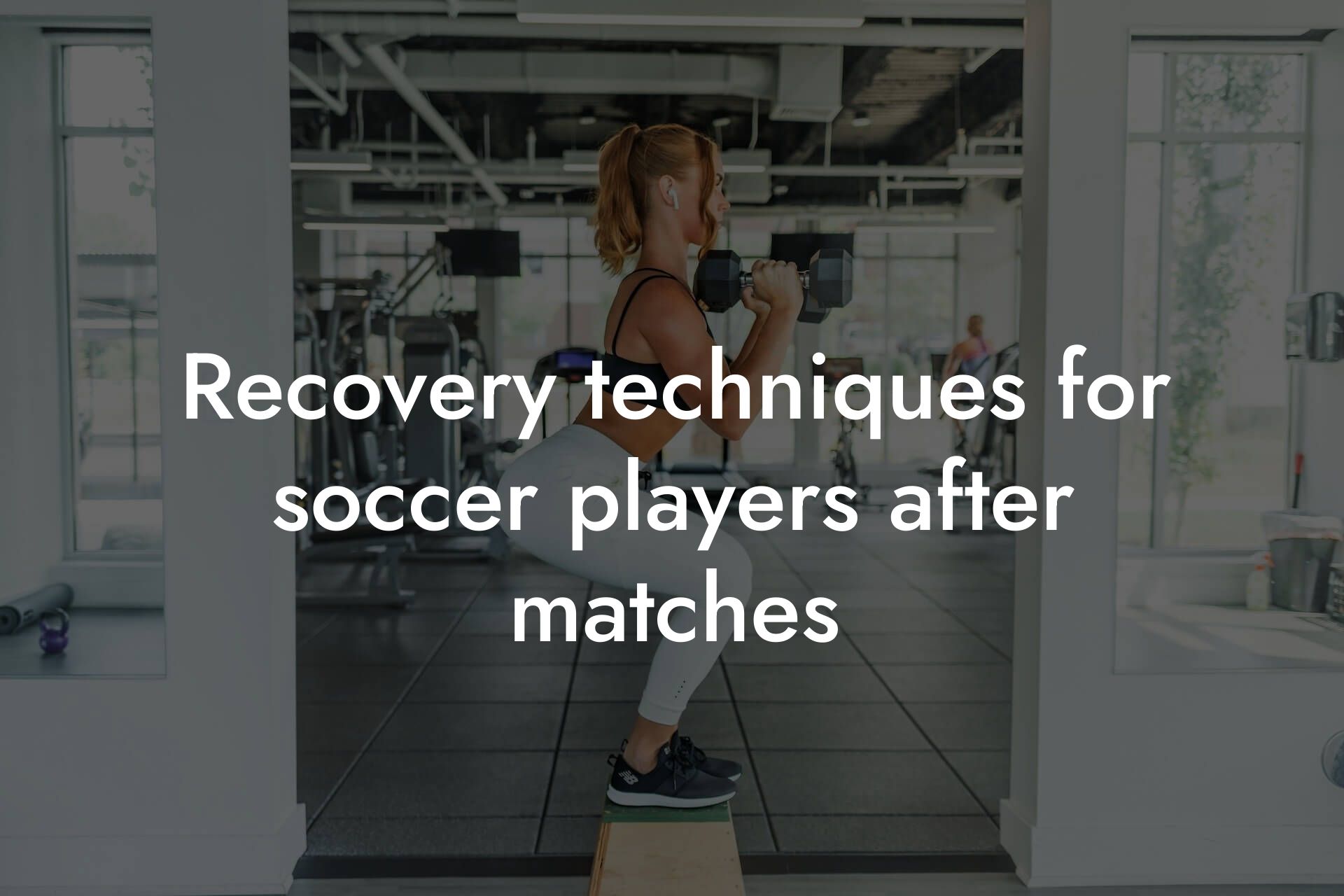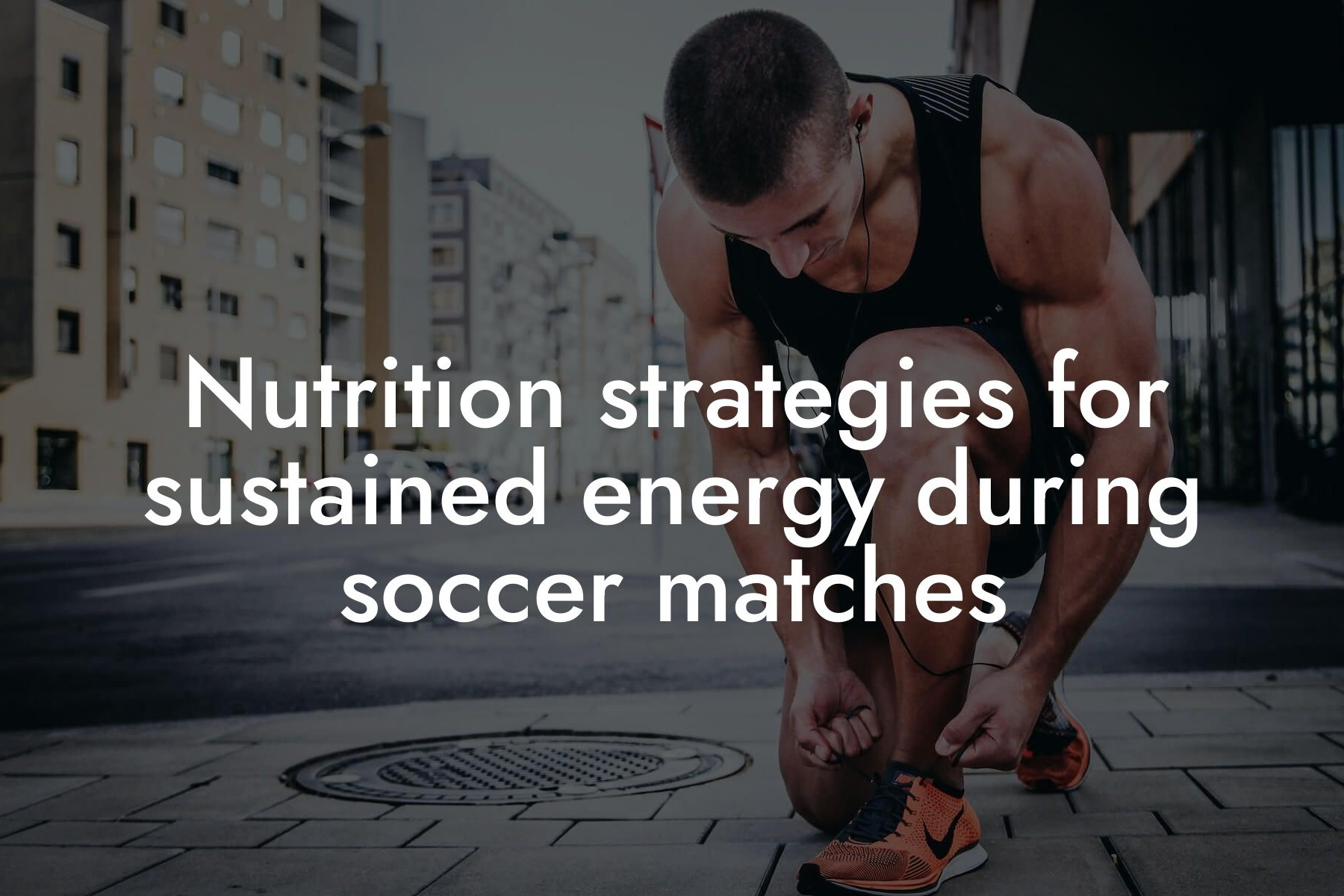As an amateur soccer player, you're likely no stranger to the physical demands of the sport. From sprinting down the wing to battling for headers in the box, soccer requires a unique blend of speed, agility, strength, and endurance. While cardiovascular fitness is essential for success on the pitch, building strength is equally important for improving performance, reducing the risk of injury, and gaining a competitive edge. In this article, we'll delve into the world of strength training for amateur soccer players, covering the benefits, principles, and exercises you need to know to take your game to the next level.
Table of Contents
- Why Strength Training is Essential for Amateur Soccer Players
- Principles of Strength Training for Amateur Soccer Players
- Essential Exercises for Amateur Soccer Players
- Sample Strength Training Program for Amateur Soccer Players
- Integrating Strength Training with Your Soccer Training
- Additional Resources
- Frequently Asked Questions
Why Strength Training is Essential for Amateur Soccer Players
Strength training is often overlooked in favor of cardiovascular exercise, but it's a crucial component of a well-rounded soccer training program. Here are just a few reasons why strength training is essential for amateur soccer players:
• Injury Prevention: Strengthening your muscles, tendons, and ligaments helps to reduce the risk of injury, particularly in the knees, ankles, and hamstrings.
• Improved Power and Speed: Building strength in your legs, core, and glutes enables you to generate more power and speed on the pitch, giving you an edge over your opponents.
• Enhanced Endurance: Strength training improves your muscular endurance, allowing you to maintain a high intensity over the course of a 90-minute match.
• Better Agility and Quickness: Strengthening your muscles and improving your power output enables you to change direction quickly and make sharp cuts on the pitch.
Principles of Strength Training for Amateur Soccer Players
Before we dive into specific exercises and programs, it's essential to understand the principles of strength training for amateur soccer players. Here are a few key considerations:
• Periodization: Vary your training program throughout the season to avoid plateaus and prevent overtraining. This might involve alternating between strength-focused and endurance-focused phases.
• Functional Exercises: Focus on exercises that mimic the movements and actions you perform on the pitch, such as squats, lunges, and step-ups.
• Multi-Planar Movement: Incorporate exercises that challenge your ability to move in multiple planes of motion, such as rotational exercises and lateral movements.
• Progressive Overload: Gradually increase the intensity of your workouts by adding weight, reps, or sets over time to continue making progress.
Essential Exercises for Amateur Soccer Players
Here are some essential exercises to include in your strength training program as an amateur soccer player:
• Squats: Works the quadriceps, hamstrings, glutes, and core muscles. Stand with your feet shoulder-width apart, then bend your knees and lower your body until your thighs are parallel to the ground.
• Lunges: Targets the quadriceps, hamstrings, glutes, and core muscles. Stand with your feet together, take a large step forward with one foot, and lower your body until your back knee is almost touching the ground. Alternate legs with each rep.
• Deadlifts: Works the glutes, hamstrings, quads, and core muscles. Stand with your feet shoulder-width apart, bend down and grab a weight or barbell with your hands shoulder-width apart, and lift the weight up to hip level.
• Step-Ups: Targets the quadriceps, hamstrings, glutes, and core muscles. Stand in front of a step or bench, raise one foot up onto the step, and then step back down to the starting position. Alternate legs with each rep.
• Planks: Works the core muscles. Start in a push-up position, with your hands shoulder-width apart and your body in a straight line from head to heels. Hold for 30-60 seconds.
Sample Strength Training Program for Amateur Soccer Players
Here's a sample strength training program for amateur soccer players, incorporating the exercises and principles outlined above:
**Monday (Lower Body):**
• Squats: 3 sets of 8-12 reps
• Lunges: 3 sets of 8-12 reps (per leg)
• Calf Raises: 3 sets of 12-15 reps
**Wednesday (Core and Upper Body):**
• Planks: 3 sets of 30-60 seconds
• Dumbbell Chest Press: 3 sets of 8-12 reps
• Bent-Over Rows: 3 sets of 8-12 reps
**Friday (Lower Body and Power):**
• Deadlifts: 3 sets of 8-12 reps
• Box Jumps: 3 sets of 8-12 reps
• Resistance Band Leg Curls: 3 sets of 12-15 reps
Integrating Strength Training with Your Soccer Training
As an amateur soccer player, it's essential to balance your strength training with your soccer-specific training. Here are some tips for integrating strength training into your overall training program:
• Allow for Recovery Time: Make sure to leave at least 48 hours between strength training sessions for the same muscle group.
• Focus on Soccer-Specific Exercises: Incorporate exercises that mimic the movements and actions you perform on the pitch, such as agility drills and small-sided games.
• Monitor Your Progress: Regularly assess your strength, power, and endurance to adjust your training program and ensure you're making progress.
Strength training is a crucial component of a well-rounded soccer training program, offering a range of benefits for amateur soccer players. By understanding the principles of strength training and incorporating exercises like squats, lunges, and deadlifts into your program, you can improve your power, speed, agility, and endurance on the pitch. Remember to periodize your training, focus on functional exercises, and integrate strength training with your soccer-specific training to take your game to the next level.
Additional Resources
At Tano Performance Group, we're committed to helping high-earning professionals like you achieve their fitness goals. Our state-of-the-art DEXA machine provides a complete body assessment, giving you the information you need to optimize your training program and take your physique to the next level. Contact us today to learn more about our services and how we can help you achieve your goals.
Frequently Asked Questions
What is the importance of strength training for amateur soccer players?
Strength training is essential for amateur soccer players as it improves their overall performance, reduces the risk of injuries, and enhances their endurance. A well-structured strength training program can help players increase their speed, agility, power, and acceleration, giving them a competitive edge on the field.
How does strength training improve soccer performance?
Strength training improves soccer performance by increasing muscle power, speed, and endurance. It also enhances neuromuscular coordination, allowing players to react faster and make quick decisions during the game. Additionally, strength training helps players maintain their speed and agility throughout the entire match, reducing fatigue and improving overall performance.
What are the benefits of strength training for amateur soccer players?
The benefits of strength training for amateur soccer players include improved performance, reduced risk of injuries, enhanced endurance, and increased confidence on the field. Strength training also helps players develop a stronger core, legs, and glutes, which are essential for explosive movements, quick changes of direction, and powerful shots.
What is the best way to structure a strength training program for amateur soccer players?
A well-structured strength training program for amateur soccer players should include a combination of exercises that target different muscle groups, such as the legs, glutes, core, and upper body. The program should also include a mix of compound exercises, plyometric exercises, and functional exercises that mimic the movements and actions of soccer.
How often should amateur soccer players strength train?
Amateur soccer players should aim to strength train at least two to three times per week, with at least one day of rest in between. This allows for adequate recovery time and ensures that players can perform at their best during training sessions and games.
What are the most important exercises for amateur soccer players?
The most important exercises for amateur soccer players include squats, lunges, deadlifts, leg press, and calf raises, which target the legs and glutes. Additionally, exercises like planks, side planks, and Russian twists are essential for building a strong core. Upper body exercises like push-ups, dumbbell rows, and shoulder presses are also important for improving overall strength and endurance.
Can strength training help prevent injuries in amateur soccer players?
Yes, strength training can help prevent injuries in amateur soccer players by improving muscle strength, flexibility, and coordination. A well-structured strength training program can also help players develop better movement patterns and reduce their risk of overuse injuries.
How does strength training improve endurance in amateur soccer players?
Strength training improves endurance in amateur soccer players by increasing their anaerobic capacity, allowing them to perform high-intensity movements for longer periods. Additionally, strength training helps players develop a more efficient energy system, reducing their reliance on anaerobic energy sources and improving their overall endurance.
What is the role of plyometric exercises in a strength training program for amateur soccer players?
Plyometric exercises, such as jump squats and box jumps, play a crucial role in a strength training program for amateur soccer players. These exercises help improve power, speed, and acceleration, allowing players to explosively change direction and quickly cover distances on the field.
How can amateur soccer players incorporate strength training into their busy schedules?
Amateur soccer players can incorporate strength training into their busy schedules by dedicating specific days to strength training, working out at home or in a gym, and using time-efficient exercises and routines. They can also consider working with a personal trainer or fitness coach to develop a customized strength training program that fits their schedule and goals.
What are the common mistakes amateur soccer players make when it comes to strength training?
Common mistakes amateur soccer players make when it comes to strength training include not warming up properly, not incorporating enough variety in their exercises, not focusing on functional exercises, and not allowing for adequate recovery time. Additionally, players may neglect to strength train their core and upper body, focusing too much on their legs and glutes.
How can amateur soccer players measure their progress and adjust their strength training program?
Amateur soccer players can measure their progress by tracking their exercise performance, such as the weight they lift or the number of repetitions they complete. They can also monitor their game performance, such as their speed, agility, and endurance. Based on their progress, players can adjust their strength training program by increasing the intensity, changing their exercises, or incorporating new training methods.
What is the role of nutrition in supporting a strength training program for amateur soccer players?
Nutrition plays a critical role in supporting a strength training program for amateur soccer players. A well-balanced diet that includes adequate protein, complex carbohydrates, and healthy fats helps players recover from their workouts, build muscle mass, and maintain their energy levels. Additionally, proper hydration is essential for optimal performance and recovery.
How can amateur soccer players stay motivated and consistent with their strength training program?
Amateur soccer players can stay motivated and consistent with their strength training program by setting specific and achievable goals, tracking their progress, and celebrating their successes. They can also find a workout buddy or join a fitness group to stay accountable and motivated. Additionally, players can reward themselves for reaching their goals and milestones.
What are the benefits of working with a personal trainer or fitness coach for amateur soccer players?
Working with a personal trainer or fitness coach can provide amateur soccer players with a customized strength training program that meets their specific needs and goals. A trainer or coach can also provide guidance on proper form and technique, help players stay motivated and accountable, and offer support and encouragement throughout their training journey.
How can amateur soccer players incorporate strength training into their off-season?
Amateur soccer players can incorporate strength training into their off-season by focusing on building their overall strength, power, and endurance. They can also use this time to address any weaknesses or imbalances in their body, work on their flexibility and mobility, and develop a stronger core and upper body.
What are the common injuries that can be prevented with strength training in amateur soccer players?
Common injuries that can be prevented with strength training in amateur soccer players include hamstring strains, groin pulls, shin splints, and knee injuries. Strength training can help players develop stronger muscles and connective tissues, reducing their risk of injury and improving their overall durability.
How can strength training improve mental toughness in amateur soccer players?
Strength training can improve mental toughness in amateur soccer players by helping them develop a stronger work ethic, build their confidence, and enhance their resilience. Additionally, strength training can help players develop a greater sense of self-discipline, allowing them to push through challenges and overcome obstacles on and off the field.
What are the benefits of strength training for amateur soccer players in terms of their overall health and wellness?
The benefits of strength training for amateur soccer players in terms of their overall health and wellness include improved bone density, enhanced cardiovascular health, and increased muscle mass. Strength training can also help players improve their sleep quality, reduce their risk of chronic diseases, and enhance their overall physical function and mobility.
How can amateur soccer players balance their strength training program with their soccer training and games?
Amateur soccer players can balance their strength training program with their soccer training and games by prioritizing their training sessions, allowing for adequate recovery time, and adjusting their strength training program based on their game schedule. Players can also work with their coach or trainer to develop a periodized training program that integrates strength training with their soccer training.
What are the key components of a well-structured strength training program for amateur soccer players?
The key components of a well-structured strength training program for amateur soccer players include a combination of compound exercises, plyometric exercises, functional exercises, and core exercises. The program should also include a mix of upper body, lower body, and total body exercises, as well as exercises that target different muscle groups and movement patterns.
Here are some related articles you might love...
- Recovery techniques for soccer players after matches
- Bone density and injury prevention for soccer players
- Nutrition strategies for sustained energy during soccer matches
- Using DEXA scans to monitor soccer player progress
- The impact of body composition on soccer performance
- Off-season conditioning for amateur soccer athletes
- Reducing body fat to enhance agility and speed in soccer
- Hydration and nutrition tips for weekend soccer warriors
Zak Faulkner
Zak Faulkner is a leading authority in the realm of physical health and body composition analysis, with over 15 years of experience helping professionals optimise their fitness and well-being. As one the experts behind Tano Performance Group, Zak has dedicated his career to providing in-depth, science-backed insights that empower clients to elevate their physical performance and overall health.
With extensive knowledge of DEXA technology, Zak specializes in delivering comprehensive body assessments that offer precise data on body fat, muscle mass, bone density, and overall physique. His expertise enables individuals to make informed decisions and achieve their fitness goals with accuracy and confidence. Zak’s approach is rooted in a deep understanding of human physiology, combined with a passion for helping clients unlock their full potential through personalised strategies.
Over the years, Zak has earned a reputation for his commitment to excellence, precision, and client-focused service. His guidance is trusted by top professionals who demand the best when it comes to their health. Whether advising on fitness programs, nutritional strategies, or long-term wellness plans, Zak Faulkner’s insights are a valuable resource for anyone serious about taking their health and fitness to the next level.
At Tano Performance Group, Zak continues to lead our Content Team revolutionising how professionals approach their physical health, offering unparalleled expertise that drives real results.




